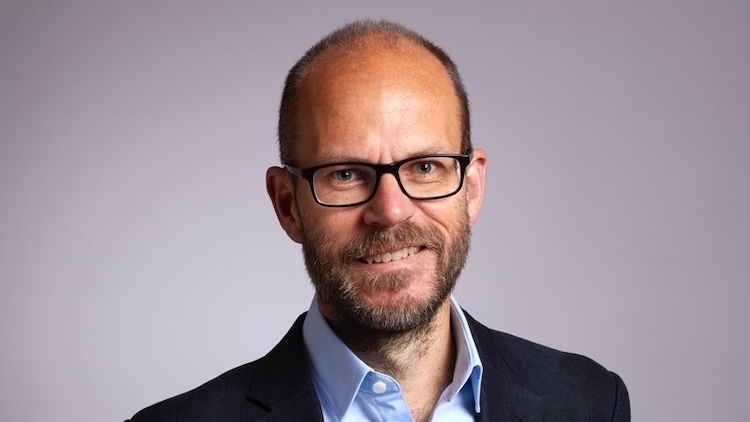
Hult International Business School President Matthew Lilley is doubling down on a pragmatic approach to undergraduate business education
BACK TO THE FUTURE IN BUSINESS EDUCATION
Even so, the radical shift to challenge-based learning—a revamp that has allowed Hult to win a MERITS award for innovation—was no easy task. “It is way more complex to run a program like this because the faculty have to speak to each other and teach according to the arc of the student journey,” says Lilley.
Liliana Caimacan, who teaches the BBA in London and also had a hand in developing the revised program, agrees. “It was a big change in the teaching experience,” she explains. “We moved from where you own your own subject module and content into a working collaborative with other faculty, staff and coaches. We had to redesign the courses completely and have a different mindset. We all had to go out of our comfort zone and rethink the content and how we deliver it. Plus, we had to go and become aware of the other elements of content that are being delivered by colleagues in accounting and finance. It was very intense.”
In some ways, the challenged-based learning approach is a return to business education in the 1950s before reports critical of the professional training students were getting coaxed schools into a research-model to gain academic legitimacy on university campuses. So it is a back-to-the-future strategy.
EACH HULT STUDENT GETS A PERSONAL COACH IN THE PROGRAM
“Everything started with the intention to bring the students and outcomes closer to what was expected from the business environment,” adds Caimacan. “We redesigned the program to replicate what is happening in industry. Students needed to have the skills and mindsets to prepare them for the real world of business. So when students graduate, they are expected to not only know marketing but to know how to apply the tools to do marketing.”
Caimacan thinks the payoff of the new program is clear. “The majority of my colleagues are equally enthusiastic,” she says. “I am coming from industry and went through many changes in the companies I worked for. This is the right thing to do to prepare the students for the business world today. Students are looking at the learning journey and want it filled with practical industry experience. Most of them enjoyed the journey and that was the feedback we got.”
To that practical bent, each Hult student has a personal career and development coach. They work with students to evaluate their skills, better understand their strengths and weaknesses, and help to connect the learnings with students’ career goals.
THE FIRST CHALLENGE? A BUSINESS PLAN FOR A STARTUP
The first challenge in the program was for students to create a business plan for a startup. “The faculty come in and teach you what you need to know for the project,” says Lilley. “At the end of the project, the students present to faculty and peers and get marked on the quality of the presentation.”
The other challenges are in social impact, future proofing, complex decisions, power and policy, culture and media, global and local, and a final capstone simply called the Hult Business Challenge. Students also get to specialize in one of several areas, including marketing, finance, business analytics, management, or entrepreneurship.
Lilley concedes that the transition to the new curriculum initially hit a few snags. “The feedback from students on the first challenge was pretty bad but we to much better with the second and now the overall satisfaction level for the new program exceeds that of the old program.”
THE NEW CURRICULUM SHOULD MAKE HULT GRADS MORE DESIRABLE TO EMPLOYERS
Caimacan still sees room for improvement. “We are probably an 8 out of a ten,” she says. “We are in a good place because we can quickly adopt and adjust, taking the things that did not work and adjusting to improve the delivery.”
What has not changed in the program is the diversity of the students. When Lilley meets alumni, they more often than not remember working in teams with students from five different countries. “A big part of the education you receive at Hult is that everyone has to adapt to everyone around them. It changes your learning experience,” says Lilley.
According to the school’s posted employment results, 98% of the Class of 2021 were either employed or attending graduate school six months after graduation, while 58% reported working in a different country.
The new curriculum should allow Hult to improve on those positive employment outcomes. If the school is delivering on what it promises, employers should be more eager than ever to hire its graduates.

Project challenges are a central focus of the undergraduate business program at Hult











Questions about this article? Email us or leave a comment below.